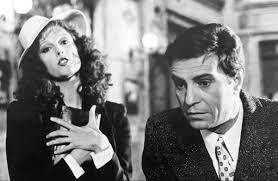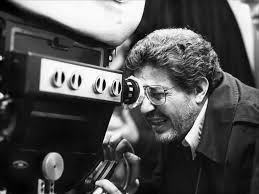Critics applaud C'EREVAMO TANTO AMATI (Ettore Scola, 1974) screening at a special one-off homage to celebrate the 100th birthday of the the great comic actor Nino Manfredi, a much admired and loved Italian classic, screening in a beautifully restored new copy at the Ritz Cinemas Randwick Monday 29 November at 6.30 pm. To Book Tickets CLICK HERE
DAVID STRATTON
“…smart and entertaining …one of director Ettore Scola’s most engaging movies.” (after viewing the film at its world premiere at the 1975 Locarno Film Festival
 |
| Stefania Sandrelli, Nino Manfredi |
ROB HARRIS
With the possible exception of the more recent body of work by China's Jia Zhangke, no film has summed up a nation's political, social and cultural history with such clarity and humanity as We All Loved Each Other So Much/C'eravamo tanto amati(1974), the first international success of a director known primarily for comedies.
Ettore Scola (1931-2016) began his career as a screenwriter of broad farces, many of them for Dino Risi, credited as one of the maestros of the Italian film comedy style to emerge in the 1950s and 1960s. After a dozen years scripting such hits as Risi's classic Il Sorpasso(1962), Scola directed his first feature, Let's Talk About Women(1964), an episodic comedy of romance and relationships starring the actor who would become his most frequent star, Vittorio Gassman. It's a mistake, however, to think of Scola's work as mere comic entertainment. Like Risi, his pictures, funny as they are, derive much of their humor from satirizing the class disparities of everyday Italian life and the high-level corruption that has frequently characterized the country's government.
Scola's stands out by incorporating into its saga a detailed and passionate consideration of Italy's greatest artistic movement of modern times, neorealism, the cinematic style that emerged in the 1940s. Its early proponents, among them Roberto Rossellini and Vittorio De Sica (to whom We All Loved Each Other So Much is dedicated), focused on stories about the poor and working class, filmed on location and often with non-professional actors, depicting the difficult conditions of Italian life….
To drive home his point, Scola incorporates excerpts and evocations of films by De Sica, Rossellini, Federico Fellini and Michelangelo Antonioni. Fellini and Marcello Mastroianni appear as themselves in a funny recreation of the filming of the famous Trevi Fountain scene in Fellini's La Dolce Vita (1960), and De Sica is seen in archival footage talking about Bicycle Thieves. There are snippets of other movies and a seduction played out as one character attempts to instruct another in the wonders of Eisensteinian montage on Rome's Spanish Steps. …(Announcing the films recent premiere on Turner Classic Movies on TCM.com)
 |
| Stefania Sandrelli, Vittorio Gassman |
VINCENT CANBY
Here is a quote from Canby in The New York Times, in 1977 when the film first opened in the US. (It has never screened at all in Australia as far as is known.)
"We All Loved Each Other So Much," which opened yesterday at the Beekman, is full of fondness, rue, outrage and high spirits. It is also—surprising for an Italian film—packed with the kind of movie references that French filmmakers like, and it is dedicated to the late Vittorio DeSica, whose "Bicycle Thief" plays a prominent part in the picture.
 |
| Ettore Scola |

No comments:
Post a Comment
Note: only a member of this blog may post a comment.